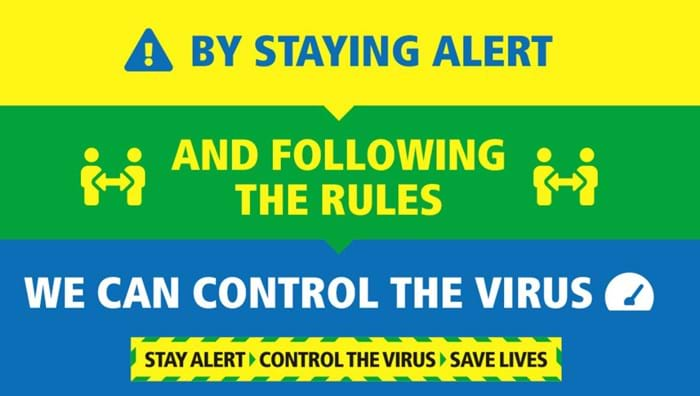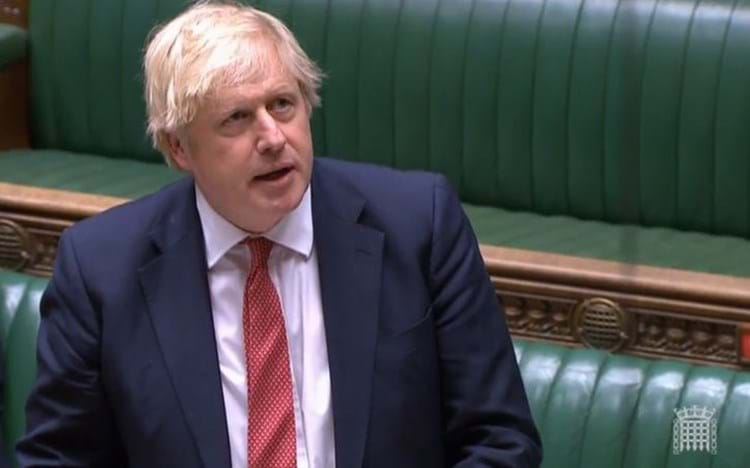The document accompanied a statement from prime minister Boris Johnson in the House of Commons on Monday afternoon which followed his address to the nation on Sunday evening (May 10) to set out his government's latest response to the coronavirus pandemic.
ATG's parent company Auction Technology Group is working with a lobbyist to see how it can ensure the government provides clarity that auction houses can re-open to the public on June 1.
For art and antiques businesses looking for full answers as to how they can best operate over the coming weeks and months, the details in the government's document are currently lacking in some areas but close scrutiny reveals some very helpful pointers:
- Most noteworthy is that firms are being recognised for conducting commerce online, and businesses such as auction houses and dealerships - while their premises are still closed to the public – can have staff on premises to handle calls, deliveries and online orders (subject to social distancing and health measures being conducted in the workplace).
- Some shops may be able to reopen from June 1 with other types of premises possibly reopening from July 4.
- Outdoor fairs and markets are likely to be able to reopen ahead of some indoor public spaces.
- Logistics firms such as delivery companies remain essential services.
Here are the specifics from the government documents (quoted in bold followed by ATG comments in italics):
From Wednesday May 13 “for the foreseeable future, workers should continue to work from home rather than their normal physical workplace, wherever possible”.
This would appear to apply generally to art and antiques businesses such as dealerships and auction houses but see further below for a crucial update issued in separate guidance earlier in May.
Clearly, it is does not apply to many workers in logistics businesses such as delivery firms which were already viewed by government as essential services and remain so.
Opening non-essential retail when and where it is safe to do so, and subject to those retailers being able to follow the new COVID-19 Secure guidelines. The intention is for this to happen in phases from 1 June; the Government will issue further guidance shortly on the approach that will be taken to phasing, including which businesses will be covered in each phase and the timeframes involved. All other sectors that are currently closed, including hospitality and personal care, are not able to re-open at this point because the risk of transmission in these environments is higher. The opening of such sectors is likely to take place in phases during step three.
This is conditional on various general tests being met such as the covid-19 infection rate and so on, and firms that do open will need to satisfy various social distancing criteria.
Which shops and when is not clear at this stage. Will a high-end art dealer’s premises be considered a ‘shop’ as it sells things to the public or a ‘gallery’ which, along with auction houses and museums, is specified on the list of non-essential firms whose premises should currently remain closed to the public (the same list as hospitality and personal care)? NB: ‘Step three’ refers to July 4 onwards.
Each step may involve adding new adjustments to the existing restrictions or taking some adjustments further (as shown in Figure 6). For example, while reopening outdoor spaces and activities (subject to continued social distancing) comes earlier in the roadmap because the risk of transmission outdoors is significantly lower, it is likely that reopening indoor public spaces and leisure facilities (such as gyms and cinemas), premises whose core purpose is social interaction (such as nightclubs), venues that attract large crowds (like sports stadia), and personal care establishments where close contact is inherent (like beauty salons) may only be fully possible significantly later depending on the reduction in numbers of infections.
This suggests that art and antiques fairs and markets could reopen ahead of some other businesses such as the leisure facilities and so on listed above.
It is also possible that auction house premises, galleries and museums could reopen to the public ahead of gyms, cinemas, nightclubs and so on as social distancing measures could be more easily enforced.
Many businesses across the UK have already been highly innovative in developing new, durable ways of doing business, such as moving online or adapting to a delivery model. Many of these changes, like increased home working, have significant benefits, for example, reducing the carbon footprint associated with commuting.
This is recognition from the government about how smart and flexible many firms have been, including dealers (selling online), fairs organisers (setting up virtual events) and auction houses (running live online only sales and timed sales). While not providing specific guidance, it does, in conjunction with the key point below, provide reassurance that conducting business online while your premises are on a stipulated list of firms that should be closed to the public is not only reasonable but is being recognised and encouraged by central government.
In a separate document, last updated on May 1, the government’s guidance on businesses that should be closed contains important differences from the same document first issued towards the end of March.
In March the document included auction houses and galleries on a list of firms in England referred to under the heading “The following businesses and premises must remain closed.”
Now, as of May 1, the document refers to them as:
“Businesses and venues that must remain closed to members of the public.”
This clarifies a key point. The premises must be closed to members of the public but that does not mean closed to staff nor does it mean the business itself must be closed.
A couple of auction houses that held live online only sales in March and April were challenged by local authorities on this matter, prevailed and continued to trade online. Now any fear of this interference recurring should be removed by this clarification. There is also a second point in the same document that now reads as follows:
All retail, other than those exempt, must close their premises to members of the public. However, staff may be present to make deliveries or provide services in response to orders such as those through telephone, online, or mail.
In the March document there was no such wording. This is now helpful clarification for art and antiques firms that wish to conduct business behind closed doors, though an increasing number had already been doing so in April on the assumption that this was what the government had actually intended all along.
Note that auction houses are included in the list of 'retail' firms even though they are generally viewed in the trade as being wholesale firms.
Chattels auctioneers whose firm also conducts other types of sales may be interested to learn that while their premises must remain closed to public, ‘livestock auctions’ are now specified as being on the exempt list (as indeed are livestock markets).
However, auctioneers or dealers hoping to be able visit clients’ homes for valuations or consignments visits are likely to be disappointed in the short term as the only tradespeople able to conduct such visits are stipulated in a separate document as those:
…carrying out essential repairs and maintenance in people’s homes, or are carrying out other work in a home such as cleaning or paid-for childcare in a child’s home.
General reminder: the above updates relate to England and the different devolved nations within the UK are taking somewhat different approaches to respond to the current Covid-19 situation though none is suggesting a significant change to lockdown any time soon. Check each devolved government’s website for the latest updates.

The government issued a new message on Sunday, May 10 to advise people of the changes to the lockdown.






